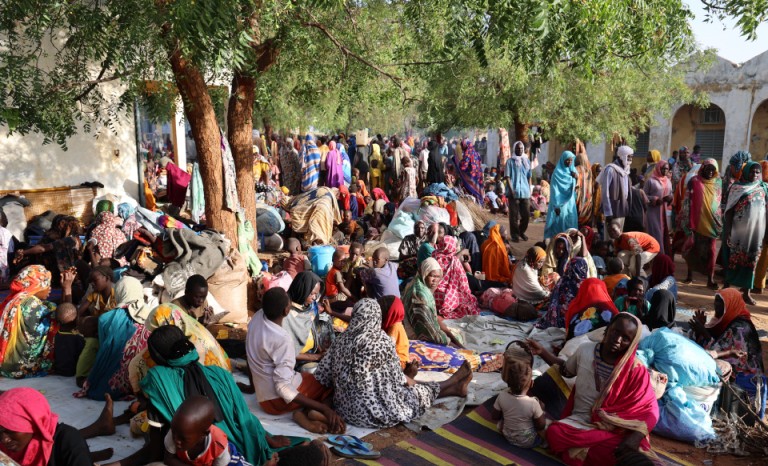UNHCR alarmed over funding gap in Sudan’s emergency response
November 23, 2023 (KHARTOUM) – The UN Refugee Agency (UNHCR) is alarmed over the funding gaps in its response to the crisis in Sudan, saying it has only received 33% of funds.
The agency said within the overall needs of $506.5 million under the Supplementary Appeal revised in August, it is urgently seeking an immediate injection of $20 million in flexible funding to sustain responses in Sudan, South Sudan and Chad next year.
“These resources will help prevent additional loss of lives, and support the safety and dignity of individuals who have already endured unimaginable trauma,” UNHCR said in a statement.
It added, “In the context of multiple humanitarian crises of epic proportions across the globe, we are reaching out to donors with a plea to identify and consider any additional funds that can be contributed to UNHCR’s Supplementary Appeal for the Sudan emergency, which remains grossly underfunded at 33 percent.”
Working with governments and humanitarian partners, UNHCR said it was able to quickly mount an emergency response to help those fleeing horrors of war that “has turned peaceful homes into cemeteries”² and put host countries in the region under immense pressure.
According to the UN refugee agency, with the ongoing conflict showing no sign of abating and new reports of atrocities across the Darfur region, more and more people are being violently uprooted, inside Sudan and across the border into Chad and South Sudan.
“With the resources at hand, it is simply impossible to cover even the most basic needs – when in fact there is an urgency to scale up operations to respond to new arrivals,” it noted.
Whilst prioritizing is extremely difficult in a context where most people we serve lack the very basics, UNHCR, however, stressed that it had identified critical areas where additional resources could make a difference between life and death, and between despair and hope.
Despite ceasefire attempts and diplomatic efforts, fighting between the Sudanese Armed Forces (SAF) and the paramilitary Rapid Support Forces (RSF) has continued relentlessly since 15 April 2023, killing over 9,000 people³, forcing over 6.3 million people from their homes and exacerbating an already dire humanitarian crisis.
There are already concerns over the poor state of the health system in Sudan, amid reports that more than 80 per cent of hospitals are no longer operational in conflict-affected states.
In addition, up to 60 per cent of the population reportedly lack access to health services.
Between May and October this year, nearly 1,900 people, most of them children, have died in nine refugee camps in White Nile State due to a combination of measles and high malnutrition while infectious diseases such as cholera, dengue and malaria are on the rise.
Continued sexual violence, torture, arbitrary killings, extortion of civilians and targeting of specific ethnic groups across Darfur has sparked fears that the same atrocities that plagued the region two decades ago could occur again, forcing more people to seek safety in Chad and South Sudan since the end of October, UNHCR observed.
More than 1.2 million people have so far fled to neighboring countries and are now facing further anguish, uncertainty and insecurity due to the poorly funded humanitarian response.
(ST)

